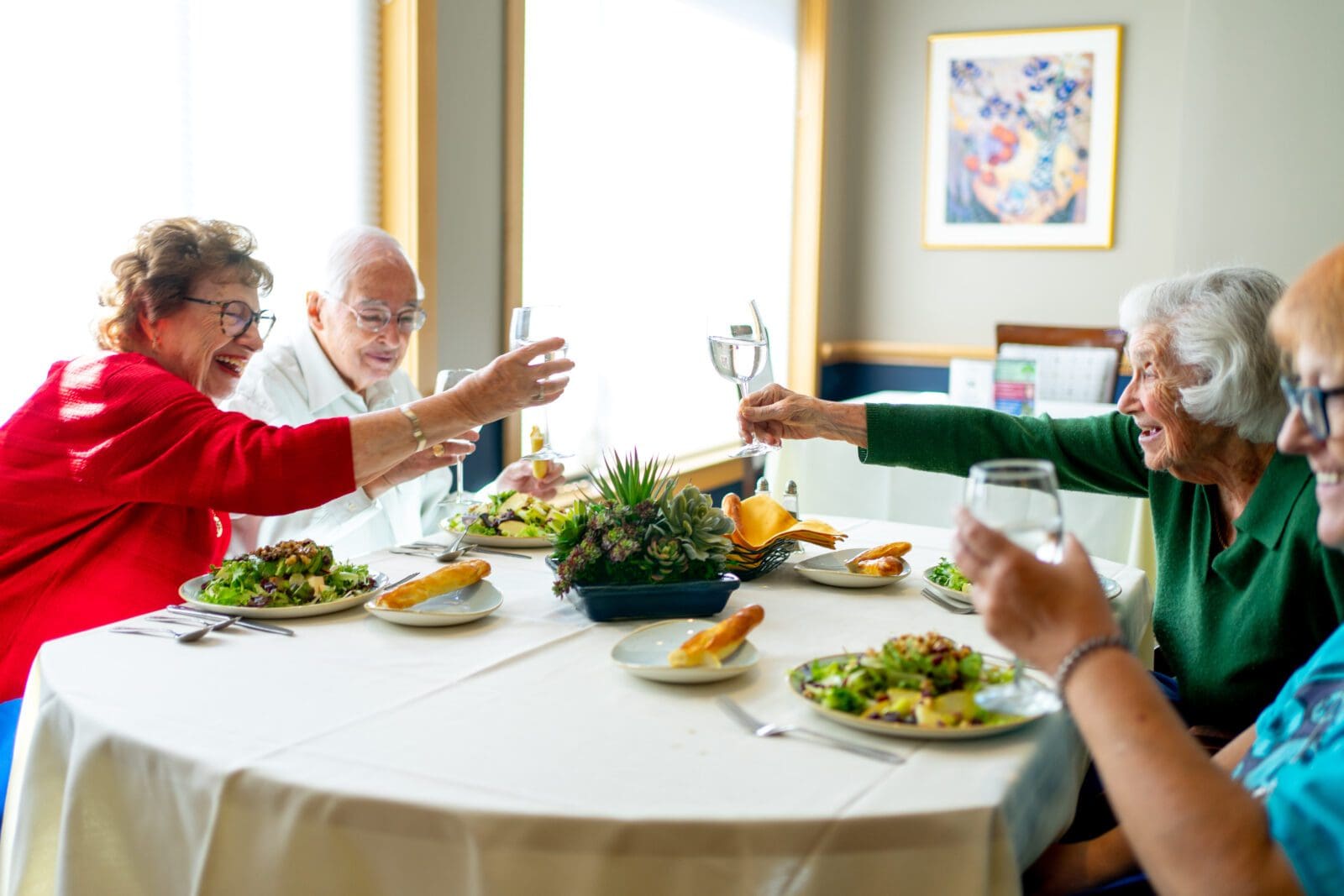Healthy Meal Planning for Seniors
October 16, 2023 | Health & Wellness


There are lots of ways seniors and their caregivers can improve their health, and proper nutrition is something that can be practiced three times a day! At Kline Galland, the culinary team does an amazing job of making sure residents get balanced, delicious meals. To help seniors eat healthy at their homes, the kitchen staff at Kline Galland put together some tips & tricks to keep in mind while meal planning.
As people age, their caloric needs naturally decrease. This is due to a natural slowing of metabolism and loss of muscle and bone mass, as well as lifestyle changes like less physical activity. While calorically, seniors may not need as much food, their nutrient needs are similar or higher than younger people. Because seniors do not need to eat as much as younger adults, it’s important to fit as many nutrients into meals as possible.
The most important guidelines are to eat whole foods, lots of protein, and decrease added sugars and processed foods. Whole foods are foods that are processed very little or not at all, and have no additives. For example, compare a chicken breast with a chicken nugget – the same food but one has been altered and had ingredients such as excess salt, sugars, and preservatives added.
Wondering what kind of whole foods to look for? Experts have suggested the following groups to get the best possible nutritional value.
- Fruits and vegetables: Dark berries, such as blueberries and cherries, are a sweet treat with a relatively low amount of sugar. They also contain fiber, potassium, magnesium, and vitamin C. For a healthy dose of protein and fiber, look to legumes such as chickpeas or black beans. Dark leafy greens also contain plenty of fiber, in addition to iron, calcium, and vitamins A and K. Calcium is especially important for seniors, as a whopping 10 million Americans over 50 suffer from osteoporosis.
- Dairy: Dairy is another great way to prevent osteoporosis, due to its high calcium content. Fermented dairy such as kefir or yogurt can aid in digestion and improve gut health as well. Dairy is also rich in protein and vitamin D – both of which are an important part of the senior diet.
- Protein: Adults naturally lose about 50% of their muscle mass between 40 and 80 years old, but this process can be slowed by ensuring seniors are eating enough protein. As muscle mass decreases, people are at greater risk for osteoporosis, falls, and injuries. Because of this, it is recommended that seniors eat 0.8 grams of protein per kilogram (2.2 pounds) of body weight per day. This translates to 55 grams of protein a day for a person who weighs 150 pounds – about the amount of protein in a single chicken breast!
- Hydration: One of the most important dietary needs is luckily one of the simplest – water! During the aging process, the sensation of thirst becomes decreased. While seniors may not feel the need to drink, dehydration causes a wide range of issues. Dehydration can cause the brain to function less effectively, leading to symptoms that mimic dementia. Fluids are vital for kidney function and digestion, as well as avoiding constipation and UTIs – both of which can be painful and serious conditions for seniors.
Eating healthy foods is extremely important for healthy aging and simple adjustments can go a long way. A good general rule of thumb is to have half your plate filled with fruits and veggies, a quarter with whole grains, and the rest with a lean protein. From the Kline Galland kitchen, we might recommend a tasty kale salad, some couscous, and a grilled chicken breast. Eating healthy can not only improve your quality of life, but is delicious as well!


